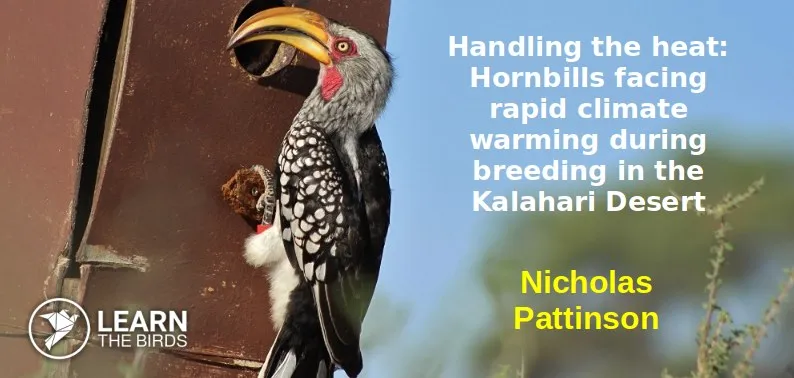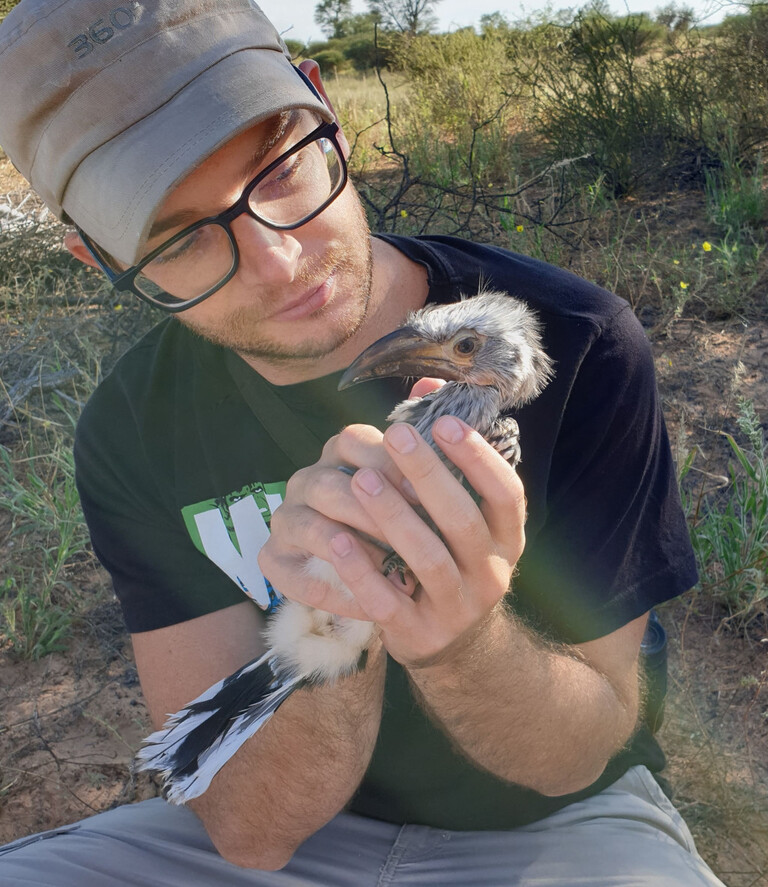
Handling the heat: Hornbills facing rapid climate warming during breeding in the Kalahari Desert
NOTE THAT THE DATE HAS CHANGED TO AUGUST 24th
Throughout my career with the Hot Birds Research Project, I have studied the high temperature-related trade-offs birds make in hot, dry places. For my PhD, I investigated how temperature and resource (food and water) availability interact to affect reproduction through monitoring breeding and analysing long-term data of a population of Southern Yellow-billed Hornbills (Tockus leucomelas; hornbills) that breeds during the hottest period of the year in the Kalahari Desert. My PhD included detailed data from a hot and dry (2019/20) and a cool and extremely wet (2020/21) breeding season. The breeding season differences I found indicated that increased resources led to some improved breeding performance, partially independent of temperature, suggesting some ability for resources to mitigate temperature effects. If better resources can lessen the impacts of temperature, then successful breeding in high rainfall years (corresponding to high resource availability) despite increasing environmental temperatures may allow populations to persist in seasonally hot places. However, overall, my results showed that high environmental temperatures were limiting regardless of resources. This suggested that rapid climate warming poses a severe threat to population persistence in the hottest parts of arid-zone birds’ distributions. In this talk, I will cover my time in the Hot Birds Research Project, and take you through my demanding research journey at the hottest edges of the map. I’ll cover how, right before my eyes, I watched as my PhD breeding population suffered under the consequences of climate warming, as I sweat, wandered, and waded (literally) in search of understanding how temperature and resources interact to drive variation in breeding performance. I hope this talk provides a window into the challenges birds, and the people studying them, face staring down the barrel of rapid climate warming.
Additional Details
Webinar link - https://us06web.zoom.us/j/88209641513?pwd=YkE5bG1UWFZ2K05pWUFkTUo1K09WQT09
Meeting ID - 882 0964 1513
Passcode - 295313
Event platform - zoom
Interaction
Please post your questions to the Zoom Chat. We will get to them at the end of the presentation.
